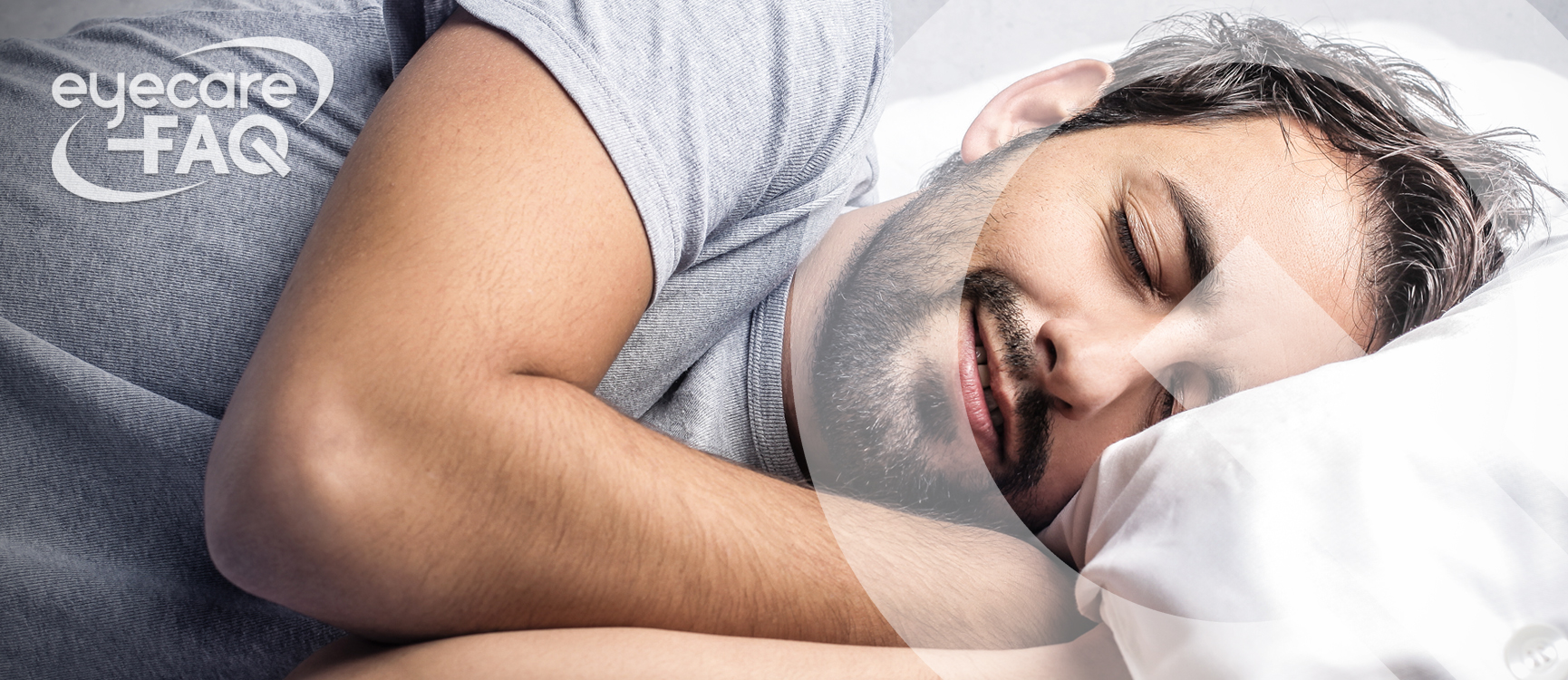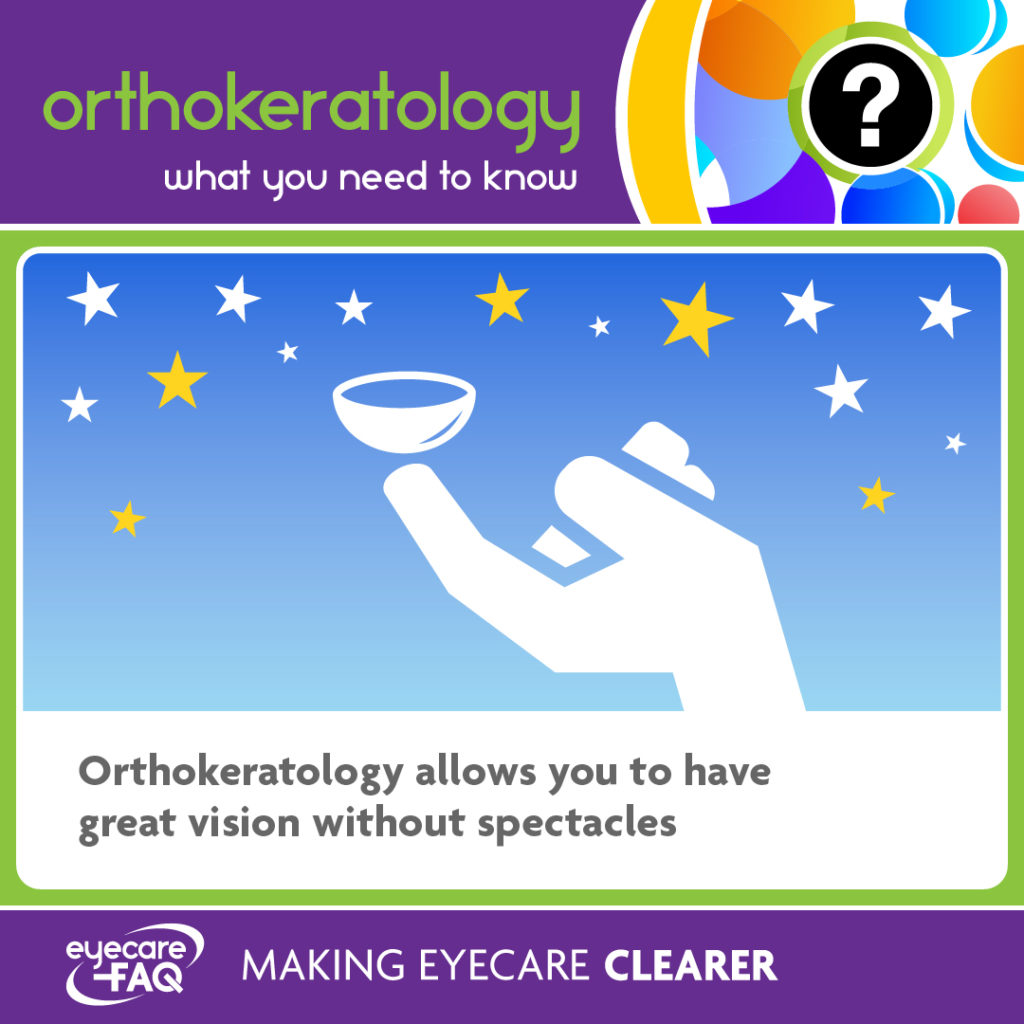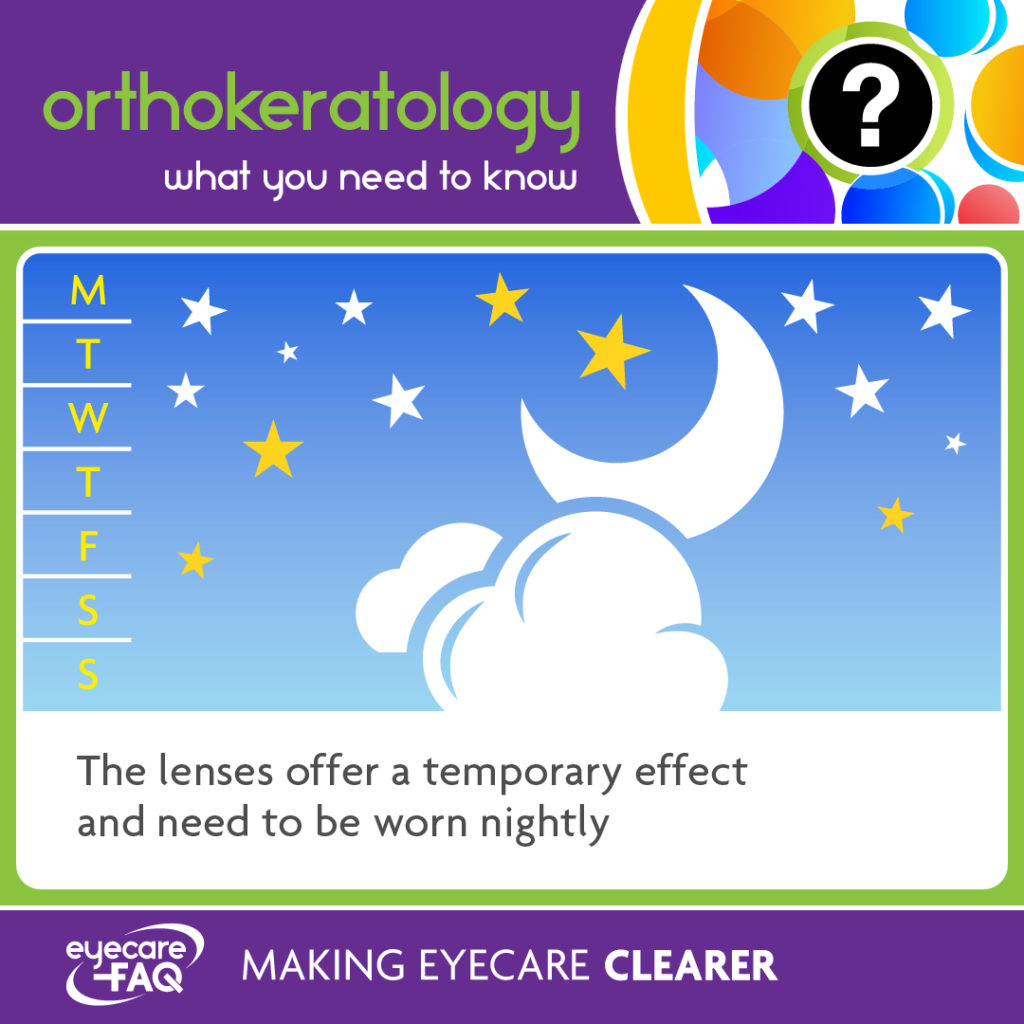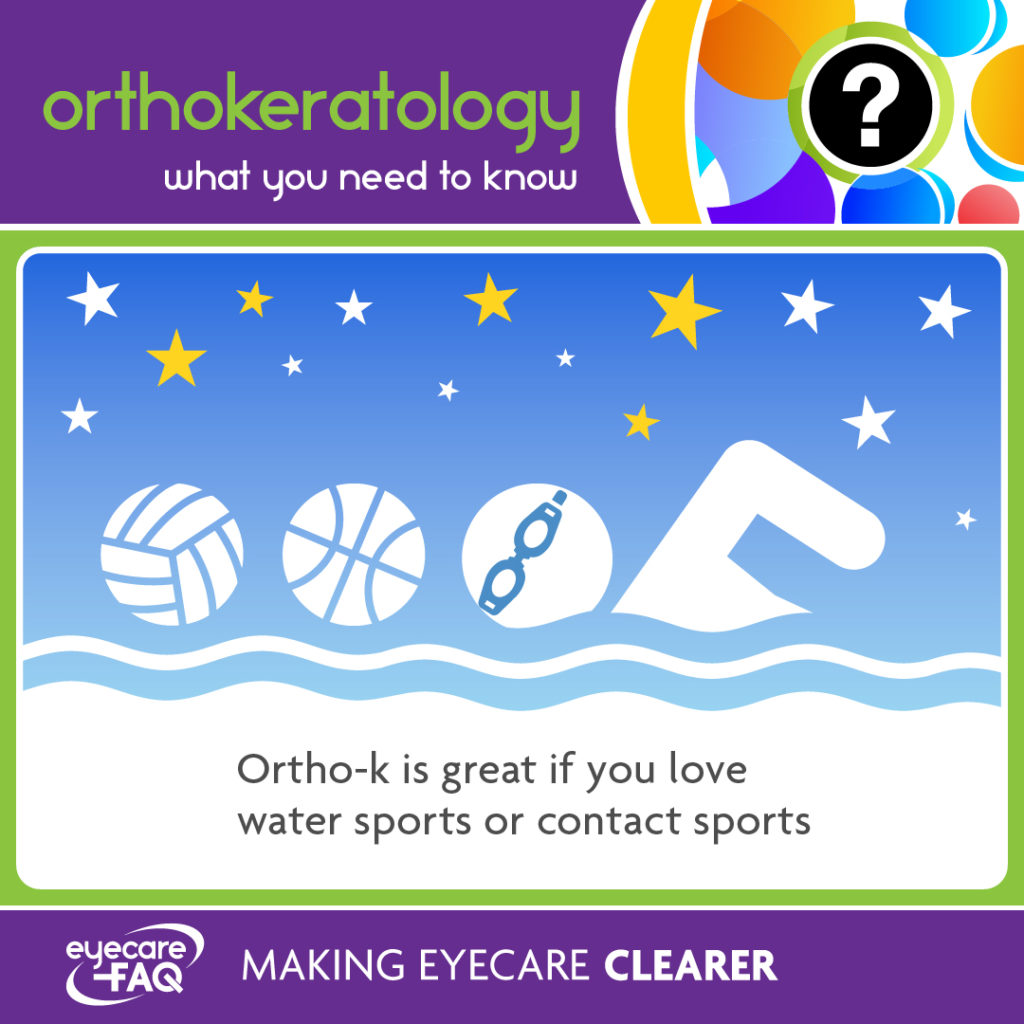What is orthokeratology?
Orthokeratology is a way to change the shape of the clear part of the front of the eye, by wearing contact lenses at night so you don’t need them during the day. If this is something you might like to try, talk to your contact lens optician.
What sort of lenses are used for orthokeratology?
Rigid gas permeable lenses, RGPs, are used to change the shape of the front of the eye overnight. These lenses can feel uncomfortable when you first try them but the feeling will lessen until you are unaware of the lenses in your eye. The lenses are made of a material that allows oxygen to reach the eye, ensuring your eye stays healthy. Ask to speak to a contact lens optician about this if you want to find out more.
How often do I need to wear lenses for ortho-k?
Lenses are initially work every night, but you may be able to cut down to wearing them alternate nights and still achieve great vision during the day. Ask to speak to a contact lens optician about this if you want to find out more.
What happens if I stop wearing RGP lenses for ortho-k?
The effects of the lenses are temporary, so if you stop wearing them your eye will go back to its original shape, and you will need to wear your glasses again.
What are the advantages of ortho-k?
It is a great way to avoid wearing contact lenses during the day, ideal if you love water sports or contact sports. You also have the advantage of good vision all the time, both during the day without the lenses and at night with them in. Ask to speak to a contact lens optician about this if you want to find out more about ortho-k.
Am I suitable for ortho-k?
According to the European Academy of Orthokeratology, orthokeratology works best for people with up to about -6.00D of myopia and no more than -1.75D of astigmatism. People who are longsighted or have a higher degree of myopia can try ortho-k but results are less certain to be good. Ask to speak to a contact lens optician about this if you want to find out more about ortho-k.
How do I find out more about ortho-k?
Go to your optical practice and ask to speak to the contact lens optician about ortho-k. They can work out if you are suitable and arrange a trial, or refer you on to a practitioner who can help.
Does ortho-k work for everyone?
Not everyone gets perfect results from ortho-k. Some people are left with a degree of short-sightedness. If you need separate glasses for reading and distance ortho-k may not be the best option for you as while it can correct distance vision you will still need reading glasses. Ask to speak to a contact lens optician about this if you want to find out more about ortho-k.
Will ortho-k permanently treat my short-sightedness?
Ortho-k can offer a temporary treatment for short-sightedness, but there is not yet enough research to show if it has a long-term effect. Ask to speak to a contact lens optician about this if you want to find out more about ortho-k.
What do I need to do to look after my eyes when using ortho-k lenses?
Make sure that you clean and wear your lenses as you have been advised by your practitioner. You should have the lenses checked at least every six months. Ask to speak to a contact lens optician about this if you want to find out more about ortho-k.




